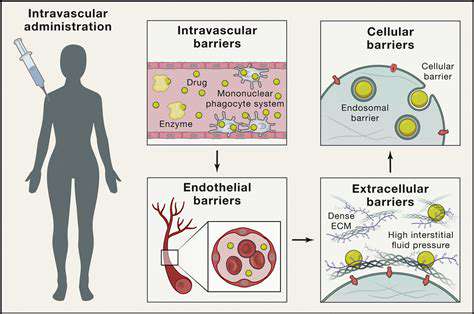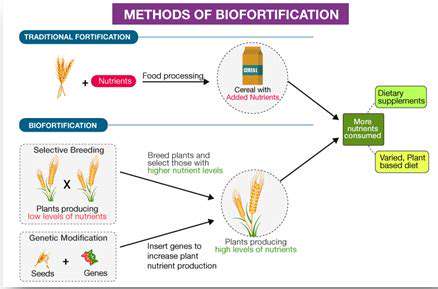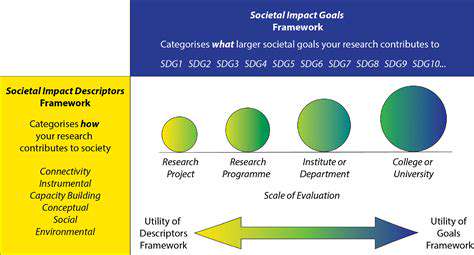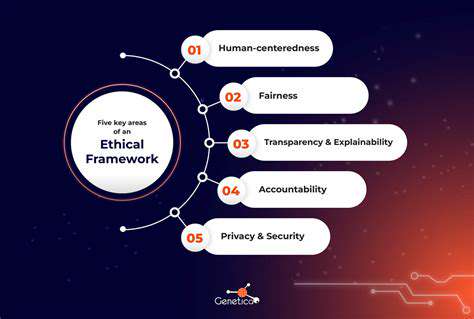Understanding the Need for Adaptive Trials
Adaptive trial designs are crucial in clinical research, particularly in situations where initial data suggests unexpected findings or where there's a need for more efficient use of resources. Traditional fixed designs, while structured, can sometimes be inflexible in the face of evolving evidence. This inflexibility can lead to wasted resources and potentially delays in the development of effective treatments. Adaptive designs allow researchers to modify the trial's parameters as the study progresses, responding to emerging data and ensuring that resources are allocated strategically.
Key Features of Adaptive Trial Designs
A hallmark of adaptive trials is their flexibility. This flexibility is achieved through pre-defined rules and statistical methods that allow the trial to adapt to new information. These rules, often based on interim analyses of the data, can alter aspects of the trial, such as the inclusion criteria, the number of participants, or even the treatment arms. This adaptability is critical for maximizing the potential for efficacy and efficiency.
Another key feature is the use of pre-specified stopping rules. These rules outline specific circumstances under which the trial can be stopped early, either for futility (if the treatment is unlikely to be effective) or for efficacy (if the treatment shows promising results). This ensures that resources are not wasted on trials that are unlikely to produce meaningful results.
Different Types of Adaptive Designs
Various adaptive trial designs exist, each tailored to specific research questions and contexts. One common type is the Bayesian adaptive design, which uses prior knowledge and updated data to dynamically adjust the treatment allocation. Another example is the sample size re-estimation design, which allows for a more precise determination of the required sample size based on accumulating evidence.
These different approaches provide researchers with tools to optimize their trials based on the specific needs of their research question. Understanding these variations is essential for selecting the most appropriate design.
Statistical Considerations in Adaptive Trials
Adaptive designs require meticulous statistical considerations to ensure validity and reliability. Researchers need to carefully define the criteria for adapting the trial and ensure that these criteria are statistically sound. The use of appropriate statistical methods for interim analyses and sample size re-estimation is critical to avoid bias and maintain the integrity of the results. This often involves consulting with experienced statisticians throughout the design and implementation phases.
Careful consideration of the potential for bias, especially in interim analyses, is crucial. The methods used to analyze data need to account for potential issues arising from multiple looks at the data.
Ethical Implications of Adaptive Trial Designs
The flexibility of adaptive trials presents ethical considerations that need careful attention. The potential for modifying the trial based on interim results necessitates clear ethical guidelines and oversight. Researchers must ensure that any adaptations do not compromise the safety or well-being of participants. Transparency in the rationale behind adaptations is also essential, enabling external review and maintaining public trust in the integrity of the research process.
Ensuring that the rights and welfare of participants remain paramount throughout the adaptive trial process is paramount. Regular ethical review and oversight are essential to address these complex issues and maintain the ethical integrity of the research.
Precision Medicine and Personalized Trial Designs

Precision Medicine: A Revolution in Healthcare
Precision medicine, a rapidly evolving field, is transforming the way we approach healthcare. It moves beyond a one-size-fits-all approach to treatment and focuses on individual characteristics, including genetics, lifestyle, and environment, to tailor medical interventions. This approach promises to significantly improve patient outcomes and reduce the burden of disease. By understanding the specific factors that contribute to an individual's health, precision medicine can lead to more effective therapies and preventative strategies.
This personalized approach has the potential to drastically change how we manage chronic conditions. For example, in cancer treatment, precision medicine allows doctors to target specific genetic mutations driving tumor growth, leading to more effective and less toxic therapies. This contrasts sharply with traditional approaches that often employ broad-spectrum treatments, which can have significant side effects and may not be as effective for all patients.
Personalized Treatment Strategies
A core tenet of precision medicine is the development of personalized treatment strategies. This means tailoring medical interventions to the specific needs of each patient. This involves considering a patient's unique genetic makeup, lifestyle factors, and environmental exposures. By understanding how these factors influence disease susceptibility and progression, doctors can select treatments that are most likely to be effective and minimize adverse effects. This personalized approach is expected to lead to better patient outcomes and a more efficient use of healthcare resources.
The application of personalized treatment strategies extends beyond cancer. In other areas, such as cardiovascular disease and diabetes, understanding individual genetic predispositions and lifestyle choices can lead to more targeted interventions, promoting preventive measures and potentially preventing the onset of these conditions. This proactive approach is a crucial component of modern healthcare.
The Role of Genomics in Precision Medicine
Genomics plays a critical role in precision medicine, providing crucial insights into individual genetic predispositions to various diseases. By analyzing a patient's genome, doctors can identify specific genetic variations that may increase their risk of developing certain conditions. This information can be used to develop personalized prevention strategies and early detection methods. This is particularly vital in identifying individuals at high risk for certain cancers or other chronic diseases, allowing for proactive intervention.
Furthermore, genomics can help predict how a patient might respond to specific medications, allowing for more effective and personalized drug prescriptions. This is particularly important in areas like pharmacogenomics, where genetic variations can influence how a person metabolizes drugs. Understanding these variations is crucial to avoid adverse drug reactions and optimize treatment efficacy.
Technological Advancements in Clinical Trial Management

Improving Diagnostic Accuracy
Technological advancements are revolutionizing clinical diagnostics, enabling faster and more accurate identification of diseases. Sophisticated imaging techniques, such as MRI and PET scans, offer detailed visualizations of internal structures, allowing for earlier detection of anomalies and more precise diagnoses. These advancements are particularly impactful in areas like oncology, cardiology, and neurology, where early intervention can significantly improve patient outcomes.
Furthermore, the development of advanced laboratory equipment has streamlined the analysis of blood samples and other biological fluids. Automated processes and sophisticated algorithms are now capable of detecting minute concentrations of biomarkers, enabling earlier and more precise diagnoses of various conditions, including infectious diseases and genetic disorders.
Enhanced Treatment Modalities
Technological advancements are not limited to diagnostics; they are also transforming treatment modalities. Robotic surgery, for instance, provides surgeons with greater precision and control during complex procedures. Minimally invasive techniques are leading to reduced recovery times and fewer complications for patients.
The rise of personalized medicine is further enhancing treatment efficacy. Genetic testing and analysis are used to tailor treatments to individual patients' needs, leading to more effective and targeted therapies. This approach considers an individual's unique genetic makeup, environmental factors, and lifestyle choices to optimize treatment plans.
Remote Patient Monitoring
Remote patient monitoring technologies are transforming healthcare delivery by enabling continuous monitoring of patients' vital signs and health data from remote locations. Wearable devices and telehealth platforms allow healthcare providers to track patients' progress and intervene promptly in case of any adverse events.
Data Analysis and Predictive Modeling
The exponential growth of healthcare data necessitates advanced data analysis techniques. Machine learning algorithms and artificial intelligence are being employed to identify patterns and trends in patient data, leading to more accurate predictions of disease risks and outcomes. This allows for proactive interventions and the development of more personalized preventative strategies. This technology is revolutionizing medical research.
Improved Drug Discovery and Development
Technological advancements are significantly accelerating drug discovery and development processes. High-throughput screening methods and computational modeling techniques are enabling researchers to identify promising drug candidates much faster and more efficiently. This leads to shorter development times and the potential for more effective and targeted therapies.
Personalized Medicine and Genomics
The field of genomics is rapidly evolving, providing insights into the individual genetic makeup of patients. This knowledge is being integrated into personalized medicine approaches to optimize treatment plans and prevent diseases. Genomic information is crucial in predicting individual susceptibility to certain diseases and tailoring therapies to specific genetic profiles. This approach has the potential to revolutionize healthcare by enabling more effective and targeted interventions.
Enhanced Patient Experience
Technological advancements are also improving the patient experience. User-friendly electronic health records (EHRs) and digital communication tools enhance communication between patients and healthcare providers. Telemedicine platforms are expanding access to care for patients in remote areas, reducing travel time and costs. These advancements are contributing to a more convenient and accessible healthcare system.











